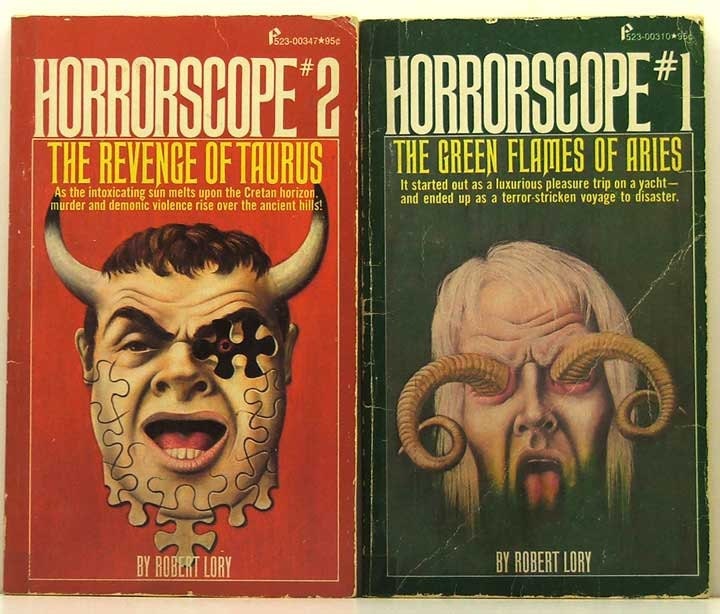by Bill Lindblad
I am annoyed by Robert Lory.
The man had a career many authors today would love to boast about: more than twenty books to his name, including multiple series. An author for Ace Doubles, which have a collector and readership love which remains forty years after the series has ended. A handful of titles which have become prized (and fairly expensive) collectors items. Published in If and The Magazine of Fantasy and Science Fiction.
What annoys me about the man is simply this: his work seems to have been forgotten by all but a handful of people. What annoys me more is that, despite some trashy covers and cover copy, the writing is surprisingly good; if it were otherwise I wouldn't be upset by his fade into the shadows. What annoys me most is that he's from Houston, a couple of hours' drive from the most recent World Horror Convention, and he didn't attend.
I know the theme was focused on newer voices in horror, but to be honest there are comparatively few American writers who produced horror in the 1970s and I doubt the organizers would have hesitated to include Lory in programming. I wish I'd realized he was from Houston, I'd have told them about him.
Why am I impressed enough to be irritated about this? In part because of this series.
First, and most importantly, this is not an innovative series. It is Pinnacle being Pinnacle, demanding a word count and focusing on what they "knew" readers wanted. The result is a set of four novels (five if you count the obscure German-edition only Cancer book) that revisit the same ground that Roger Corman and Hammer had mined for a decade before. You're not getting Oxrun Station here, you're not getting Kane, you're not even getting Hot Blood. Instead it's a bunch of self-contained short novels whose only associative themes are a supernatural element and an aspect which can be paired to one of the signs of the Astrological Zodiac.
There's nothing in the Taurus novel that a person wouldn't get from watching one of the Dr. Phibes movies, nothing that would inspire a person to read the Gemini novel instead of watching Matheson's TV movie treatments of the Kolchak stories. But Lory made them enjoyable.
Secondly, despite the formulaic nature of the books the author managed to surprise me on occasion. They reminded me of the original Blade movie with Wesley Snipes or many of the later Bond films: lacking originality, but handling their material well and loading the story with so many predictable elements that it becomes easy to forget one or two and be pleasantly surprised when they are reintroduced during the story. (Ah, so THAT'S why they gave him the explosive pen in the first act!).
These books are a great example of an author doing good things within the limitations of his material, and they are easily among the least of his work. I'm left to wonder what he might have done under a better publisher during the boom time of the 1980s, and left to encourage readers to try this series, so long as they know what they're going to get from it.
--Bill Lindblad

